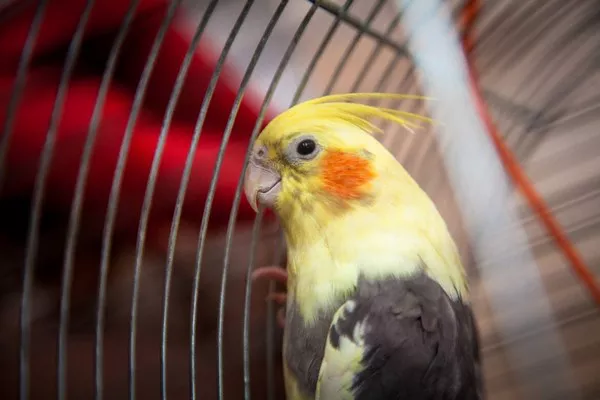Betta fish, also known as Siamese fighting fish, are one of the most popular aquarium pets due to their stunning colors, vibrant personalities, and relative ease of care. However, when it comes to keeping Betta fish healthy, one of the most commonly asked questions among beginners is whether Betta fish can live without a heater. In this article, we will explore the role of a heater in a Betta’s environment, discuss the effects of temperature on Betta fish, and help you understand how to provide the ideal living conditions for your Betta without compromising its well-being.
1. Understanding Betta Fish’s Natural Habitat
Before we dive into whether Betta fish can survive without a heater, it’s important to understand where Betta fish come from and what their natural environment is like.
Betta fish are native to Southeast Asia, specifically Thailand, Cambodia, Vietnam, Laos, and Malaysia. In the wild, they are commonly found in slow-moving waters such as rice paddies, streams, and ponds. These areas are usually warm and have a relatively stable temperature. The water temperature in their natural habitat is typically between 76°F (24°C) and 80°F (27°C).
Betta fish are tropical fish, meaning they thrive in warmer water and are adapted to environments with temperatures that stay within a narrow range. This is important because their metabolic processes, immune systems, and overall health are closely tied to the temperature of the water they inhabit.
2. The Role of Water Temperature for Betta Fish Health
Water temperature plays a crucial role in the overall health and well-being of Betta fish. Like all tropical fish, Betta fish are ectothermic, meaning they rely on the temperature of their environment to regulate their body temperature. This makes it vital for Betta fish to live in a habitat with water that stays within their preferred temperature range.
If the water is too cold, Betta fish become lethargic, their metabolism slows down, and their immune system weakens. This makes them more vulnerable to infections and diseases. Cold water also hampers their ability to digest food properly, which can lead to malnutrition and other health problems.
On the other hand, water that is too warm can lead to problems as well. Betta fish are particularly sensitive to sudden temperature fluctuations, and excessive heat can cause stress, which is harmful to their immune system. High temperatures also reduce the oxygen levels in the water, which can lead to suffocation or other respiratory issues.
3. The Importance of a Heater in a Betta Fish Tank
A heater is essential in maintaining the ideal temperature for Betta fish in an aquarium. In many regions, room temperature is not sufficient to keep the water warm enough for Betta fish to thrive. In fact, in colder climates or during the winter months, the temperature of the room may drop well below the Betta’s preferred range.
Without a heater, you may find that the water temperature fluctuates too much, especially during the night when the room cools down. These fluctuations can stress your Betta fish and lead to a weakened immune system, making them more susceptible to diseases like fin rot, swim bladder disorder, and skin infections.
A heater allows you to maintain a constant temperature in the aquarium, which is important for the Betta’s metabolism, digestion, immune system, and overall vitality. Betta fish thrive best in a stable, warm environment that mimics the tropical waters of Southeast Asia.
4. Can Betta Fish Live Without a Heater?
Now, the big question: Can Betta fish live without a heater?
In short, Betta fish can survive without a heater in some conditions, but it is not recommended for their long-term health and well-being. In a tank without a heater, the water temperature will often drop below the ideal range, which can cause stress and illness over time. Let’s explore the scenarios where Betta fish might survive without a heater and the risks involved.
Living in a Warm Climate
If you live in a warm climate where the ambient temperature remains consistently warm year-round, you might be able to keep your Betta fish without a heater. In these regions, where the room temperature stays within the 75°F to 80°F (24°C to 27°C) range, a heater might not be necessary. However, even in warm climates, temperatures can fluctuate, especially at night or during seasonal changes. It is important to monitor the water temperature to ensure it does not dip too low during colder months.
Small Tanks or Bowls
Some people keep Betta fish in small tanks or bowls, where a heater might not be necessary due to the compact size of the container. Smaller tanks can heat up more quickly, especially if placed near a warm area like a heater or sunny window. However, this is not a reliable long-term solution. Small tanks are prone to rapid temperature fluctuations, and Betta fish are particularly sensitive to these changes. Even if the room temperature is warm, the water temperature may still vary enough to cause stress to your Betta.
Potential Risks of Not Using a Heater
Even in warm climates or small tanks, there are risks involved when keeping Betta fish without a heater:
Temperature Fluctuations: In regions where the temperature can vary, the absence of a heater may result in sudden drops in temperature, especially at night. Betta fish are particularly sensitive to such changes, and rapid fluctuations can cause them to become stressed or ill.
Weak Immune System: Cold temperatures can weaken the immune system of Betta fish, making them more prone to diseases like fin rot, velvet disease, and columnaris. A steady, warm temperature helps to keep their immune system strong and functional.
Slow Metabolism: Cold water slows down the metabolism of Betta fish, which can lead to poor digestion, loss of appetite, and slower growth. In extreme cases, Betta fish may refuse to eat altogether, leading to malnutrition and other health issues.
Lethargy and Stress: If the water is too cold, Betta fish may become sluggish and inactive. They may spend most of their time lying at the bottom of the tank or hiding, which is not normal behavior. Chronic stress can lead to a weakened immune system, poor water quality, and even early death.
5. How to Keep Betta Fish Without a Heater
If you find yourself in a situation where you cannot use a heater, it is still possible to keep your Betta fish alive with extra care. However, this will require constant monitoring and adjustments. Here are some tips to help you provide the best conditions for your Betta without a heater:
Monitor Room Temperature
Make sure the room where your Betta fish lives stays consistently warm. Betta fish prefer temperatures between 76°F and 80°F (24°C to 27°C). If you live in a climate where the temperature drops significantly at night or in the winter, consider placing your Betta tank near a warm area, such as a radiator or heater (but not directly on top of it, as this could cause overheating). You can also use an aquarium thermometer to check the temperature regularly.
Insulate the Tank
If the temperature drops at night, you can insulate the tank to maintain a more stable temperature. You can wrap the sides of the tank with materials like foam or Styrofoam to help keep the heat in. There are also aquarium-specific insulating materials that can help stabilize the water temperature.
Avoid Direct Sunlight
Although Betta fish thrive in warm temperatures, direct sunlight can cause the tank water to overheat, leading to dangerous temperature spikes. Ensure your Betta’s tank is placed in an area where it receives indirect sunlight but is not exposed to the heat of direct sunlight for prolonged periods.
Keep Tank Size Small and Consistent
Smaller tanks may be easier to maintain at a stable temperature since they warm up more quickly than larger tanks. However, it is important not to go too small, as very small containers are difficult to maintain in terms of water quality, and Betta fish need space to swim. A tank of at least 5 gallons is recommended for a healthy Betta fish.
Use a Heater as a Backup
If you are trying to keep Betta fish without a heater, consider using a temperature-controlled backup. For instance, you could use a heater that has an automatic temperature regulation feature, ensuring the water stays within a safe range without overheating. This way, if the room temperature fluctuates, the heater will automatically maintain a stable environment for your Betta fish.
Conclusion
While it is possible for Betta fish to survive without a heater in some circumstances, it is highly recommended to use a heater to maintain the ideal temperature for your Betta fish. A stable water temperature is essential for their health, metabolism, immune function, and overall well-being. Even if you live in a warm climate or have a small tank, it is safer and more reliable to use a heater to ensure that your Betta fish thrive in a consistent and optimal environment.
By keeping the water temperature within the range of 76°F to 80°F (24°C to 27°C), you will help your Betta fish stay active, healthy, and stress-free. Remember, a heater is an investment in your Betta’s long-term health and happiness, and it is well worth the peace of mind knowing that your fish is in a stable, suitable environment.
So, while Betta fish might be able to survive without a heater under certain conditions, a heater is the best way to ensure your Betta has the ideal living conditions to live a long, healthy, and vibrant life.
Related Topics:





















